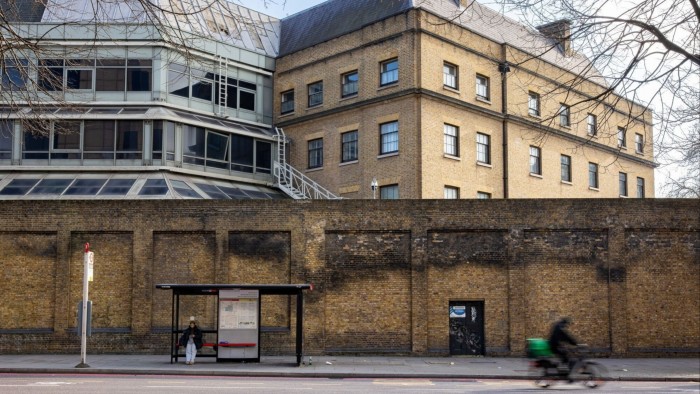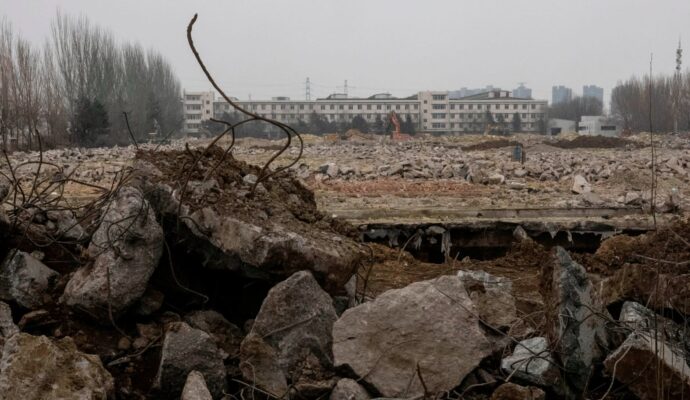
Unlock the Editor’s Digest for free
Roula Khalaf, Editor of the FT, selects her favourite stories in this weekly newsletter.
The writer is a former British diplomat who specialised in China. He is now a fellow of the Council on Geostrategy and the Royal United Services Institute
The prime minister, the chancellor and the former foreign secretary all declare national security to be their number one concern. The government’s previous refusal to state that China is a national security threat in a now collapsed espionage trial shows that this is easy to say, but difficult in practice. That is because the government must balance four competing priorities: national security, economic prosperity, climate change and public opinion.
Last year a senior government official described Labour’s policy on China as “to say less externally, and say more internally”. In other words, no more shouting about the evils of the Chinese Communist party (CCP) but sensible co-operation, while defending our interests where necessary. A new China Audit was to spell out how.
This audit, wraithlike, came but left no clarity about how the government, business, academia and society should deal with China. Then foreign secretary David Lammy declared that everyone would understand why most of it had to be kept secret. We do not. How are outsiders to be guided in their China dealings if they cannot see the guidance? The suggestion is that trade and investment eclipse everything else.
The UK’s handling of the case against Christopher Cash and Christopher Berry, two men accused of spying on MPs for Beijing, has strengthened this suspicion. (Both men denied wrongdoing and the prosecution offered no evidence in court.) The government eventually produced evidence statements from the Deputy National Security Adviser concerning China’s threat to national security. But it remains unclear why the case did not go ahead.
Why couldn’t the jury be left to decide the threat in the light of evidence laid before it, as the judge in the Bulgarian spy case earlier this year set out? What changed between the start of September, when the prosecution was lining up witnesses, including me, and the sudden pulling of the case a week later.
An aroma of appeasement is circulating. The decision to permit China to build an embassy on the site of the old Royal Mint has again been postponed. Why is this issue so difficult? If there are sensitive communication cables underneath, which cannot be rerouted, then China must find somewhere else. If there aren’t, it should go ahead.
Worries about espionage and dungeons for torturing transnational victims are overwrought. Embassies are magnets for surveillance and the Chinese will not run sensitive operations out of theirs. Delay and darkness only feed suspicions that the UK government is scared of making a decision.
The KGB defector Oleg Gordievsky is reported to have said that in dealing with democracies, authoritarian states only respect strength. China has become increasingly assertive, at times bullying. Diplomacy is no different from the playground: bullies back off when stood up to.
What is the UK government afraid of? Ministers worry about the importance of China to our future economic prosperity; we cannot imperil trade and investment. But they should, as the Chinese say, seek truth from facts. Take trade, or rather UK exports to China. This is not inconsiderable at £28.8bn last year. But exports are not greatly swayed by politics. In the last 15 years, all countries in the diplomatic doghouse with China have seen their exports rise. They rose in the UK in 2012-13, after the Dalai Lama’s visit, and fell during the so-called “golden era” of George Osborne. Besides, CCP policies of “dual circulation” and “self-reliance”, along with a stuttering Chinese economy, do not inspire confidence for the future.
Chinese investment as a percentage of foreign investment stock in the UK is 0.2 per cent. At its pre-Covid height, this created and maintained around 3,000 jobs a year. Since 2016, Chinese investment is aimed at technologies, many of which we should not be sharing. The Treasury does not reveal foreign ownership of gilts, but China’s share is likely to be small.
Officials counter by pointing to future Chinese investment, particularly in wind and electric vehicles. But these pose big security risks. EVs are surveillance machines on wheels and the data could — and probably would — go back to China. China could also disable them remotely.
The spy case has been a masterclass of ineptitude. Had the trial gone ahead and a guilty verdict been recorded, the Chinese would have bellyached. But a two-day wonder would have soon faded away. Everyone spies, no big deal, no drop in exports or investment.
But between the government and the Crown Prosecution Service, they have ensured that not only do officials “speak more internally”, but the press, the public and our allies are speaking even more “externally”. I doubt that the Chinese are pleased either.


